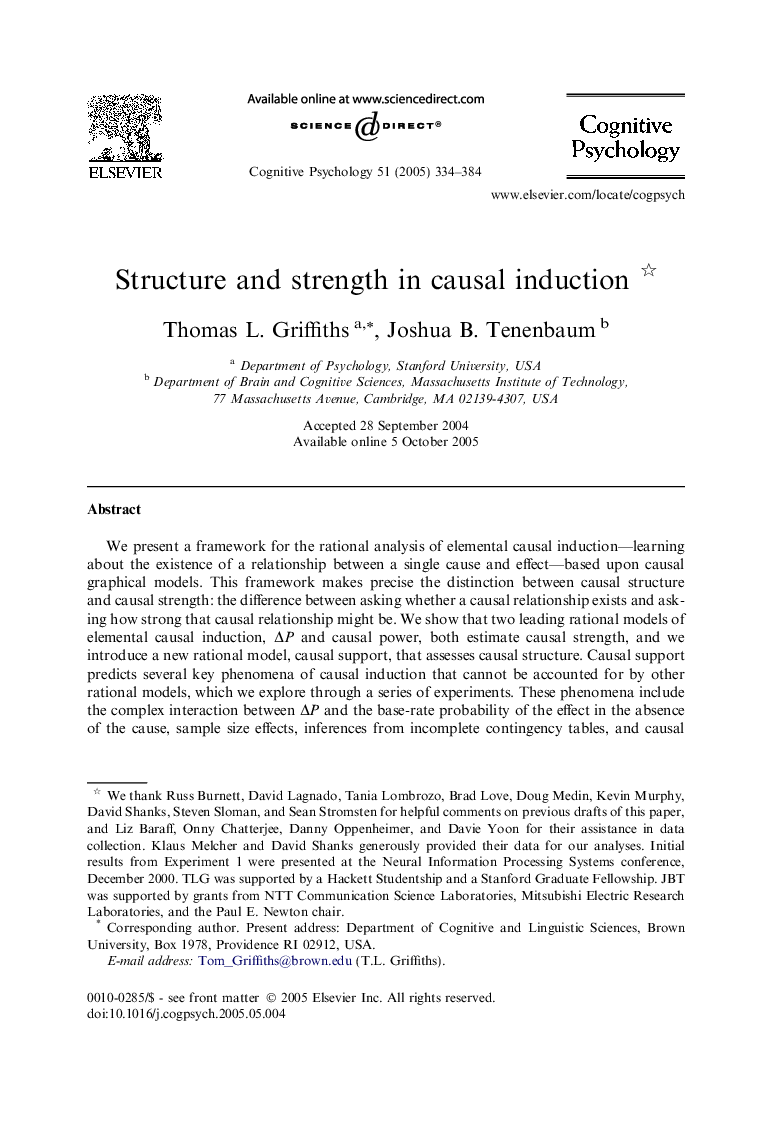| Article ID | Journal | Published Year | Pages | File Type |
|---|---|---|---|---|
| 10452452 | Cognitive Psychology | 2005 | 51 Pages |
Abstract
We present a framework for the rational analysis of elemental causal induction-learning about the existence of a relationship between a single cause and effect-based upon causal graphical models. This framework makes precise the distinction between causal structure and causal strength: the difference between asking whether a causal relationship exists and asking how strong that causal relationship might be. We show that two leading rational models of elemental causal induction, ÎP and causal power, both estimate causal strength, and we introduce a new rational model, causal support, that assesses causal structure. Causal support predicts several key phenomena of causal induction that cannot be accounted for by other rational models, which we explore through a series of experiments. These phenomena include the complex interaction between ÎP and the base-rate probability of the effect in the absence of the cause, sample size effects, inferences from incomplete contingency tables, and causal learning from rates. Causal support also provides a better account of a number of existing datasets than either ÎP or causal power.
Related Topics
Life Sciences
Neuroscience
Cognitive Neuroscience
Authors
Thomas L. Griffiths, Joshua B. Tenenbaum,
